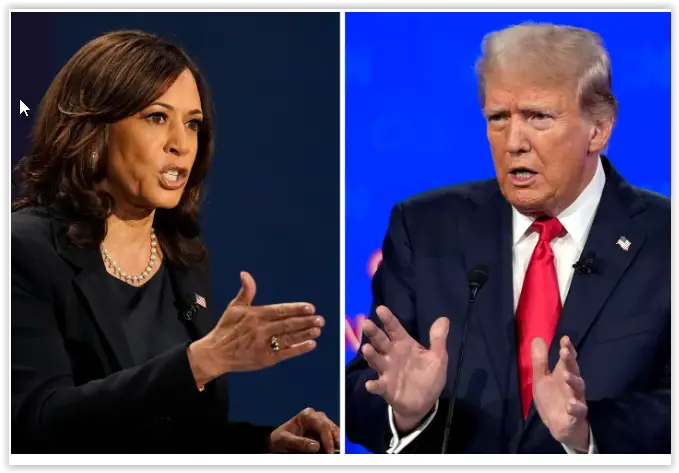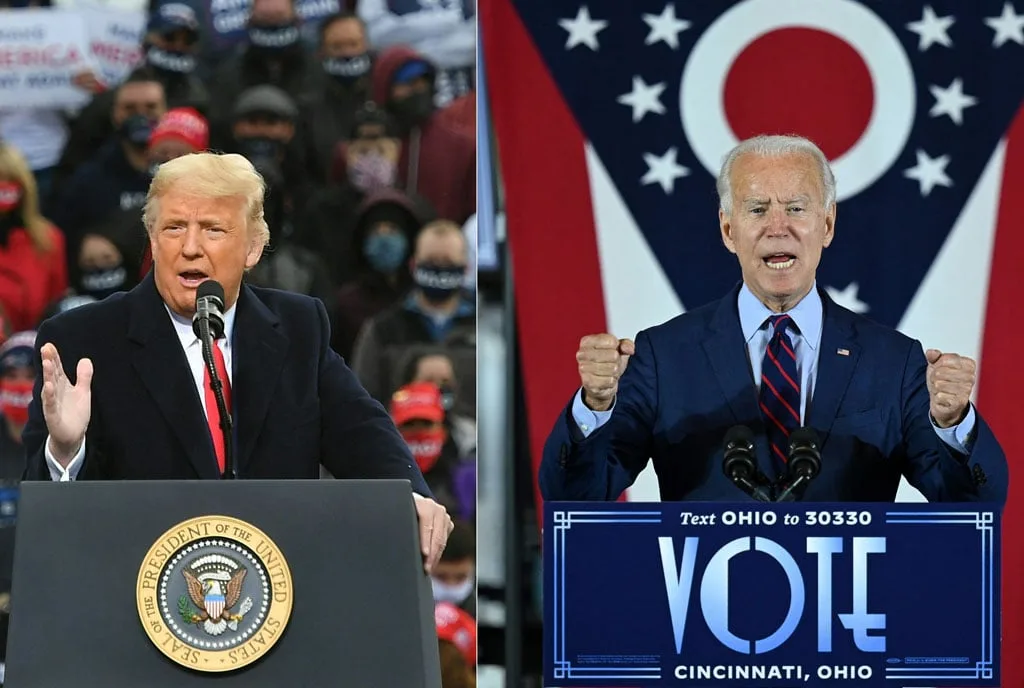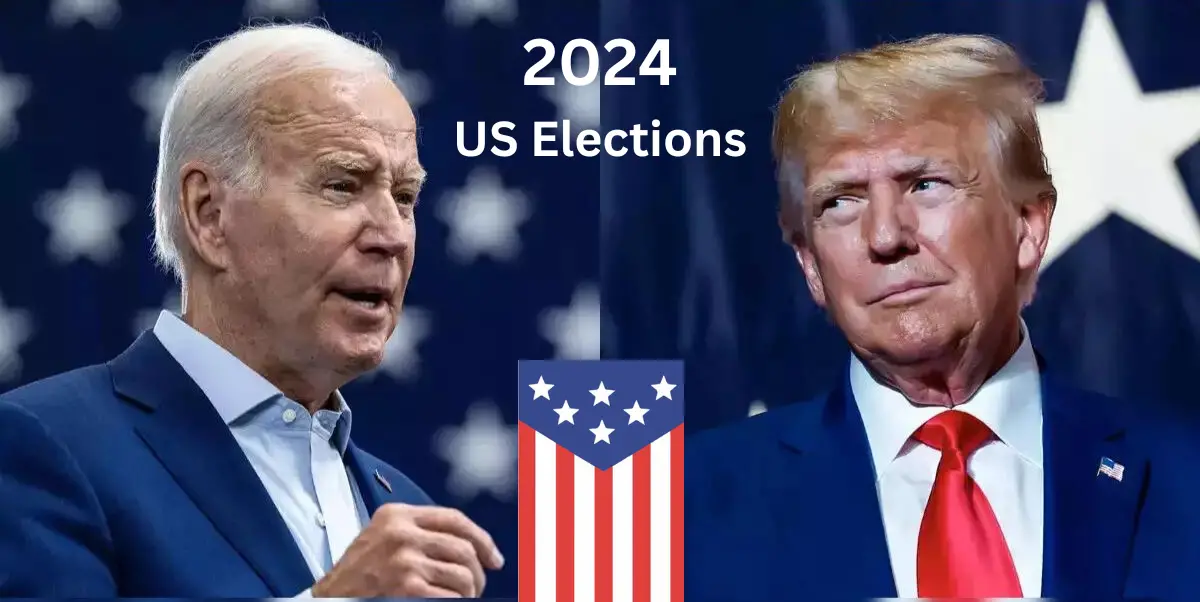In the much-anticipated 2024 presidential debate, Donald Trump and Kamala Harris took to the stage for a heated 90-minute exchange in Philadelphia. What was expected to be a traditional policy debate quickly turned into a verbal showdown, with Harris leveraging a carefully crafted strategy to put Trump on the defensive from the start. The clash was a significant moment in the ongoing race, with Harris displaying a calculated approach to undercut Trump’s strengths and amplify his weaknesses.
The tone of the debate was set early on when Harris, after a formal handshake, wasted no time launching pointed critiques. Her sharp commentary on Trump’s rally sizes, conduct during the Capitol riot, and the revolving door of former administration officials now critical of his leadership threw the former president off balance. These digs rattled Trump, forcing him to abandon a structured defense and engage in lengthy, emotional rebuttals.
Harris’s tactics were clear: she repeatedly led Trump away from policy discussions and into defensive postures. When asked about immigration, for example, Harris suggested that Trump’s rallies were dwindling in enthusiasm, with attendees leaving out of “exhaustion and boredom.” This remark caused Trump to shift the focus of his response away from immigration and instead defend the size and excitement of his rallies — a topic that should have been his strong suit.
The evening saw several similar moments where Trump’s need to defend his past conduct played right into Harris’s hands. One of the more curious exchanges occurred when Trump veered into a bizarre defense of a debunked rumor involving Haitian immigrants and pet abductions in Ohio. While Harris capitalized on this moment to emphasize the absurdity of Trump’s statements, the former president’s meandering answer left viewers perplexed.
When the debate turned to the economy and inflation — an area where many Americans are dissatisfied with the Biden administration’s handling — Harris pivoted, focusing instead on Trump’s proposed tariffs, which she labeled the “Trump sales tax.” By doing so, she successfully diverted attention from her administration’s economic struggles, putting Trump in a position to defend his past policies rather than attacking hers.
Abortion, another highly contentious issue, became another point where Harris effectively maneuvered. While Trump stumbled through an argument that claimed most Americans wanted Roe v. Wade overturned, Harris seized the moment with a heartfelt appeal to families who have been affected by abortion bans in Republican-led states. Branding these restrictions as “Trump abortion bans,” she delivered a pointed message that resonated with a segment of voters where she holds a clear advantage.
Harris’s ability to provoke Trump into defensive ramblings extended to other issues as well. When questioned about her past liberal positions on fracking, Harris brushed it off and ended by drawing attention to her refusal to take handouts from her wealthy father. Trump, rather than focusing on her changing stance on key issues, responded by mentioning his own “tiny fraction” of inheritance from his father, another moment where Harris steered the narrative in her favor.
Trump’s frustration was palpable throughout the debate. His scowling demeanor contrasted sharply with Harris’s bemused and incredulous expressions, which seemed designed to underscore the dissonance between his responses and the gravity of the topics at hand. Trump’s irritation was further fueled by what Republicans have claimed was favoritism shown by the moderators, David Muir and Linsey Davis, who fact-checked him on multiple occasions.
By the end of the debate, Harris had successfully kept Trump on the back foot, allowing her to deliver her key messages while forcing Trump into repeated defenses. Snap polls and betting markets reflected this dynamic, with many voters and pundits declaring Harris the winner of the night.
The Harris campaign wasted no time in capitalizing on the momentum. Shortly after the debate concluded, they called for a second face-off before November, signaling their confidence in the vice-president’s performance. Meanwhile, Trump indicated in a Fox News interview the next morning that he was “less inclined” to participate in another debate, claiming victory despite signs of discomfort during the event.
Adding to Trump’s woes, pop icon Taylor Swift threw her support behind Harris, endorsing her and Tim Walz, further boosting the vice-president’s post-debate momentum.
Ultimately, the first debate was a clear strategic win for Kamala Harris. Her ability to force Trump into a defensive position on issues ranging from his legacy to his policies, combined with her controlled, empathetic messaging on key topics, left her campaign in a strong position moving forward. For Trump, the debate was a missed opportunity to go on the offensive, as he found himself repeatedly defending his past rather than defining his vision for the future.
Conclusion:
The first presidential debate of the 2024 election season highlighted Kamala Harris’s ability to disrupt Donald Trump’s usual debate tactics and set the tone for the race moving forward. While Trump’s core supporters may remain steadfast, Harris’s strategic performance positioned her as a formidable contender, leaving the door open for future debates to further influence undecided voters.



